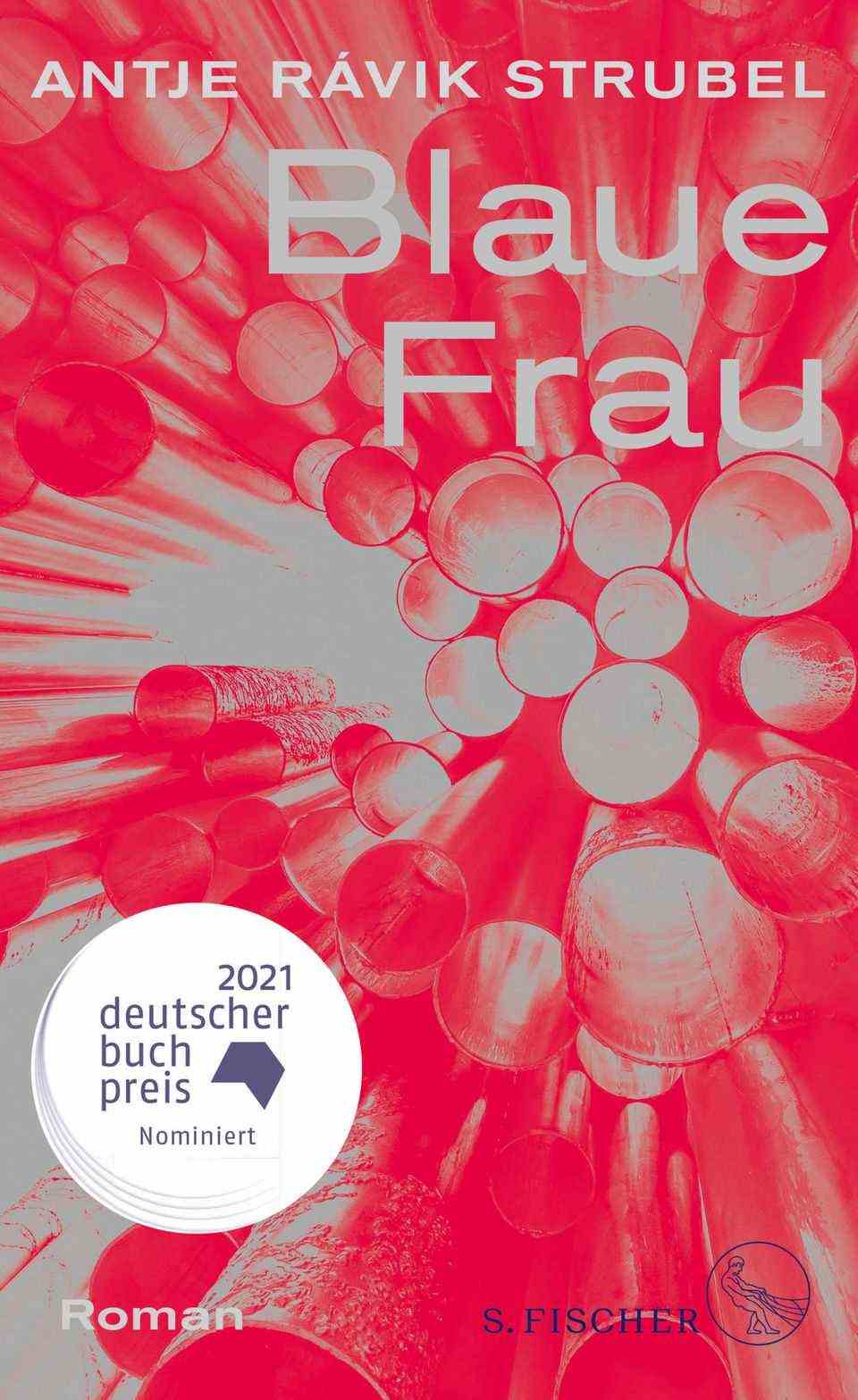German Book Prize
Why you should read “Blue Woman”
Antje Rávik Strubel won the German Book Prize 2021 with her novel “Blaue Frau”.
© Sebastian Gollnow / DPA
The author Antje Rávik Strubel was mainly known to literature lovers. Now she has won the German Book Prize – with a demanding book that is only gradually becoming more captivating. But it’s worth reading.
It starts a little slowly, this novel about the trauma of an abused woman, for which Antje Rávik Strubel won the German Book Prize on Monday. Adina, the protagonists, perceive their surroundings, detail for detail. Metal lampshades sway in the wind. “The bedroom faces the courtyard, where there is a playground, a shed for the bicycles and the rowan tree.” But the further you read, the clearer it becomes: These are the minute perceptions of a woman who is in shock. She clings to what she sees, hears and smells.

Antje Rávik Strubel: Blue Woman. S. Fischer Verlag, 429 pages, 24 euros.
© S. Fischer Verlag
The book prize jury found the novel to be disturbing: “In a tentative narrative movement, Antje Rávik Strubel succeeds in bringing up what is actually inexpressible in a traumatic experience.” And indeed: How Adina gradually begins to rediscover herself through her sensory impressions, touches on the trauma, pulls her more and more under its spell. Because as clear as Antje Rávik Strubel remains in her no-frills language and her descriptions, the horror that surrounds her becomes unmistakable: As a young intern, Adina fell into the clutches of a powerful, instinct-driven cultural dandy. She was sexually abused and tortured. “Blue Woman” tells a classic MeToo story. Very calm, but artistic and serious.
Encounters with a mystical blue woman
The mysteriousness with which she writes – for example when it comes to the encounters between a writer and a mystical blue woman – is readily accepted. Just like the hints or the sudden breaks in the narrative when bits of memory come to life before Adina’s inner eye before she jumps back into the present. Because, unlike in some other ambitious novels, you never lose your bearings, Strubel knows exactly what she’s doing. It creates tension. And that is growing steadily over a good 430 pages, increasing to the deep indignation at the power structures that made what happened to Adina possible.
This inner outrage was also noticeable in Strubel’s acceptance speech, which she used to warn against the hatred that often characterizes debates about language, for example about gender asterisks. The war had been fought for a lot less, she said. But the question is whether this is not the end of opinionhighness for the end of opinionfreedom will be held.
A thought that underlines the importance of telling such a story. Even more so: in this smart, calm, well-considered way.

